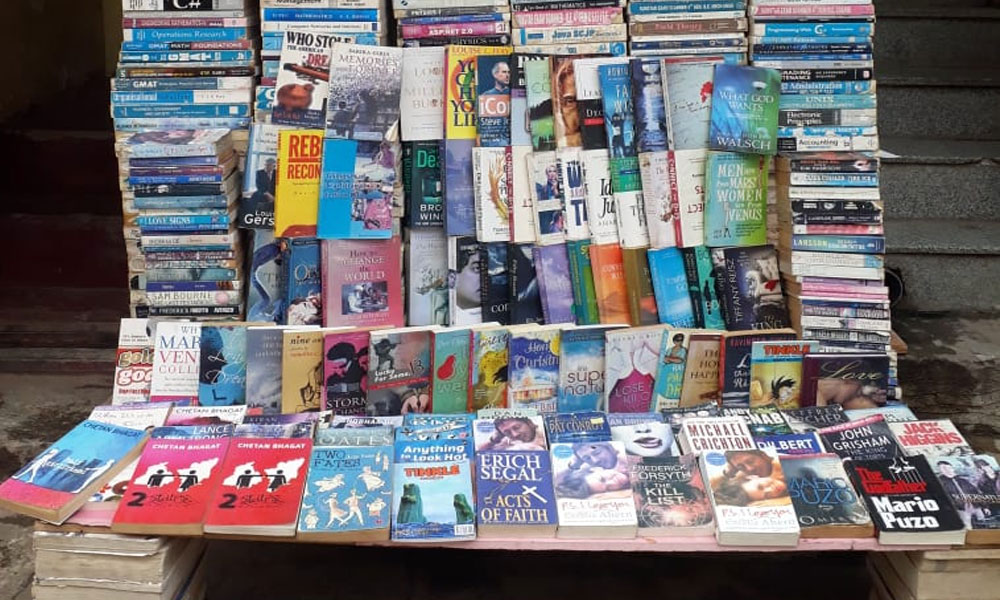There has been a gradual change in the reading habits of people, and the book shop owners are facing implications of it.
Nagendra, who has been selling books on Avenue Road for around 40 years, says a lot of students take Xerox copies of books instead of buying books, to save costs, which affects his business. He also attributes his losses in business to people buying duplicate books at cheaper rates, and highlights that the postgraduate students seldom buy books and prefer reading online.
Anil, who owns Dhruv Book Center, and has been working there for the past 11 years also reiterates Nagendra’s opinion regarding this issue. The general consensus among the bookshops owners is that e-books are eating into their businesses, along with online purchasing or paperback editions of books.
They also feel that due to the emergence of Reliance Industries-owned Jio Network, more people can access audio books, epubs and books online.
Sayan Mazumdar, a senior manager with an MNC e-commerce company, says the pie size of book readers are shrinking due to time spent over social media, e-books, Kindle etc. PDF piracies are also reducing the sales of physical books.
Huge discounts are offered by online stores as these online market places can afford to pass on high discount due to low centralized inventory cost (centralized inventory refers to inventory that a company holds in a single hub, through which it ships inventory to customers in a large area), no retail space cost, economy of scale and heavy negotiation power over publisher for higher margin by e-commerce companies.
Bimbabati Sen, portfolio manager at Pearson Academic USA, feels that low- priced e-books and pirated PDFs are taking over the market. That’s why distributors of big public publishers are investing more in digital media and providing customers with more digital options.





